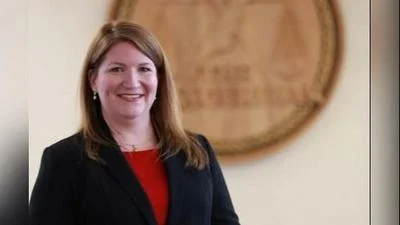Rep. Mark Alford, U.S. Representative for Missouri's 4th District | Ballotpedia
Rep. Mark Alford, U.S. Representative for Missouri's 4th District | Ballotpedia
Today, the House Small Business Committee approved the Returning SBA to Main Street Act, a piece of legislation spearheaded by Oversight, Investigations, and Regulations Subcommittee Chairman Mark Alford. The act, officially titled H.R. 2027, passed by a vote of 15-11 and seeks to decentralize the Small Business Administration (SBA) by relocating 30% of its Washington, D.C. headquarters staff to various regions across the country. This move aims to bring the SBA closer to the communities it serves.
The corresponding Senate bill is being led by Senate Small Business and Entrepreneurship Committee Chair Joni Ernst.
Subcommittee Chairman Alford expressed his support for the bill, stating, "We are one step closer to giving rural small businesses in Missouri’s Fourth District and across our great nation a seat at the table." He emphasized that, with this legislation proceeding out of committee, Republicans are signaling to small business owners that "the days of empty SBA headquarters, unanswered phone calls, and inadequate access to capital and counseling are over."
House Small Business Committee Chairman Roger Williams also highlighted the importance of the act, saying, "Small businesses across the country are faced with unique challenges. Despite this, the SBA is not located on Main Street, but instead, centralized in Washington, D.C." He praised Rep. Alford for introducing the act, noting that relocating agency employees will ensure SBA responsiveness and alignment with small businesses nationwide.
A Government Accountability Office (GAO) study from 2023 found that SBA headquarters was operating at just 10% capacity during the previous administration, which, paired with liberal telework policies, led to the SBA not fully serving its intended purpose. The Returning SBA to Main Street Act aims to address these issues, improving efficiency and customer service while saving taxpayer money on unused office space. According to the proponents of the legislation, it aligns with efforts by the Trump Administration’s Department of Government Efficiency to enhance governmental operations.



 Alerts Sign-up
Alerts Sign-up